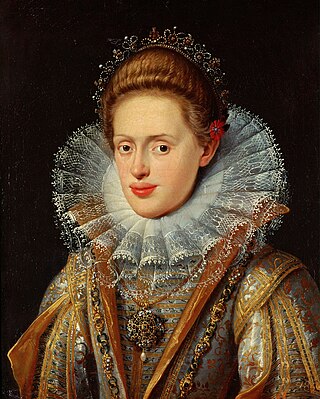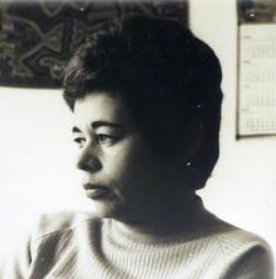Related Research Articles

Anna of Bohemia and Hungary, sometimes known as Anna Jagellonica, was Queen of Germany, Bohemia, and Hungary and Archduchess of Austria as the wife of King Ferdinand I.

Anna of Tyrol was by birth an Archduchess of Austria and member of the Tyrolean branch of the House of Habsburg and by marriage Holy Roman Empress, German Queen, Queen of Bohemia and Queen of Hungary.

Margarete Hilferding, born Hönigsberg, was an Austrian physician and psychoanalyst.
Julia Arnall was a German-born British-based actress.
Johanna Pauline Alexandrine Kundmann was an Austrian lawyer and judge. In 1947, Kundmann, together with Gertrud Jaklin, was one of the first two women who were appointed judges in Austria. Johanna Kundmann subsequently worked as a judge on various courts in the district of the Oberlandesgericht Linz and was also appointed to the Appellate Court.

Margalith Galun was an Israeli lichenologist. She was a member of the Israel Academy of Sciences and Humanities and established the Israeli collection of lichens at Tel Aviv University. Founder of the academic journal Symbiosis, she served as its editor-in-chief between 1985 and 2006. In 1994, she was awarded the Acharius Medal and in 1996 won the Meitner-Humboldt Prize, for her contributions to the field. The International Association for Lichenology grants an award which bears her name to honor scholarship at their quadrennial symposium.
Gertrud Hildegard Jaklin was an Austrian lawyer and judge. Jaklin together with Johanna Kundmann in 1947 was one of the first two women who were appointed judge in Austria. After the end of National Socialism in Austria, Jaklin was appointed in February 1947 assistant judge in the Higher Regional Court of Vienna in the first class of judges. Subsequently, Gertrud Jaklin worked as a judge at the Regional Court for Civil Law Matters, at the Juvenile Court and at the District Court of Innere Stadt.
Friederike Zeileis was an Austrian women's right's activist and one of the founding members of the International Women's Suffrage Alliance. She was also involved in the founding and implementation of the Vienna Settlement Movement, serving in various capacities on its board from 1901 to 1932.
Ernestine Diwisch was an Austrian political activist (KPÖ). After 1938 she became caught up in anti-government resistance. She was arrested and taken to Berlin where she faced the special People's Court. She was convicted and sentenced to death on 8 February 1944. She was taken back to Vienna and executed on the guillotine that had been installed at the city's district court complex shortly after the German National Socialists had taken control of Austria.

Marie Lang was an Austrian feminist, theosophist and publisher. Born in 1858 in Vienna, Lang was raised in a liberal, upper-middle-class home. After divorcing her first husband in 1884, she married Edmund Lang and the two hosted an influential salon for politicians and intellectuals. Joining the women's movement toward the end of the 1880s, she quickly became an influential women's rights activist. In 1893, along with Auguste Fickert and Rosa Mayreder, she founded the Allgemeiner Österreichischer Frauenverein. In spite of provisions in Section 30 of the law governing associations, which prohibited women's political involvement, the three friends used their networks of influential politicians and intellectuals to press for legal changes in laws governing women and children's civil rights and in favor of women's suffrage. In 1898, she co-founded the women's journal Dokumente der Frauen, serving as its editor-in-chief until 1902.
Ilse Erika Korotin is an Austrian philosopher and sociologist. She researched and published on the history of ideas of Nazism. At the Institute for Science and Art in Vienna, she heads the Documentation Centre for Women's Studies. Her work focuses on feminist biographical research and history of science.
Maria Wagensonner-Schipper, best known as "Mimi Wagensonner," was an Austrian composer and poet.

Maria Dorothea Simon was an Austrian psychologist and scholar of social work. Born into a Jewish family in Vienna near the end of the First World War, she was educated in Austria and Czechoslovakia but emigrated to London after the latter was annexed by Germany in 1938. While in the United Kingdom, she worked at the Hampstead Nurseries, an experimental child care centre run by the psychoanalyst Anna Freud. She was married to the jurist and resistance activist Joseph Simon.
Leonie Adele Spitzer was an Austrian writer, poet, and educator.
Alice Mavrogordato was an Austrian-born American artist, and translator. She is known for her abstract oil paintings, and is associated with the Washington Color School movement. She worked as a translator during the Nuremberg trials in the mid-1940s.

Elfriede Tungl was an Austrian civil engineer. She was the first Austrian woman to earn a doctorate in civil engineering and in 1973 became the first female associate professor at the Vienna University of Technology.
Karoline Bruch-Sinn was an author, translator, and editor from Austria-Hungary. She published under the pseudonym Adele von Drachenfels, as well as the names Carola, Saldau, and Sphinx.

biografiA. biographische datenbank und lexikon österreichischer frauen is a biographical dictionary of historical and contemporary notable women of Austria. The German language open-access full text is available online.
Herta Felicia Staub was an Austrian writer, poet, and journalist, best remembered for her poetry that dealt with fascism and war resistance. She served as the sole woman cultural editor for Wiener Zeitung from 1932 to 1938.
Edith Hörandner was an Austrian folklorist and educator. On receiving her doctorate from the Folklore Institute at the University of Vienna, she worked as a researcher at the Gesellschaft für den Volkskundeatlas in Österreich on the Austrian Folklore Atlas (1966–68). From 1968 to 1986 she was a research assistant at the Vienna Folklore Institute, after which she was appointed Professor of Folklore at the University of Graz until her retirement in 2007. Her work included research into folk medicine, food, costumes, and beliefs and superstitions. She later devoted attention in her teaching and publications to ageing, the everyday life of children and Halloween.
References
- ↑ Gabriele Schneider, "Richterinnen in Österreich", juridikum (in German), no. 4/2013, Verlag Österreich, p. 502
- ↑ Ilse Korotin, Nastasja Stupnicki, ed. (2018), Biografien bedeutender österreichischer Wissenschafterinnen (in German), Böhlau Verlag, p. 315, ISBN 9783205202387
- ↑ Ilse Korotin (Hrsg.): biografıA. Lexikon österreichischer Frauen. Band 2: I–O. Böhlau, Wien/Köln/Weimar 2016, ISBN 978-3-205-79590-2, S. 1156.